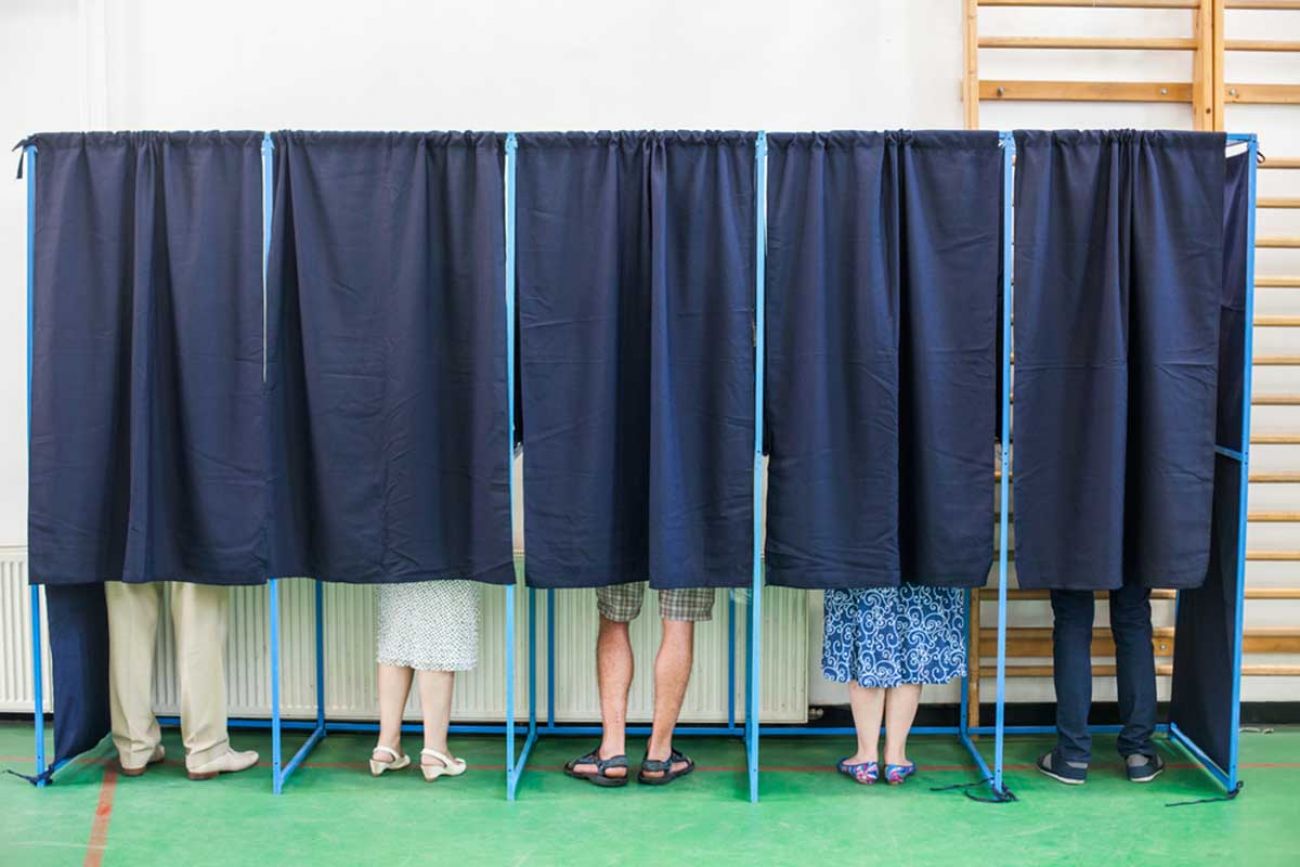Michigan primary results: Rashida Tlaib cruises, Peter Meijer wins big


Related: GOP’s advantage wanes in last year of Michigan ‘historical’ gerrymander
LANSING — Michigan primary election results — and the potential makeup of the state’s next congressional delegation -- took shape Wednesday as clerks continued to work through a statewide absentee ballot surge that broke records amid the coronavirus pandemic.
While Wayne County was still processing results, U.S. Rep. Rashida Tlaib, D-Detroit, cruised to victory in her closely watched primary rematch against City Council President Brenda Jones. With 90 percent of precincts reporting, the progressive Tlaib had received nearly twice as many votes as Jones, a former union leader. The district is one of the most reliably Democratic in the nation, which means the winner is all but guaranteed a second term.
- Absentee ballots favor Democrats in Michigan, causing worry among GOP
- President Trump worries about voter fraud. Here’s the reality in Michigan.
- Whitmer tightens Michigan’s mask order but makes it optional when voting
In the eastern Michigan Thumb region, Republican businesswoman Lisa McClain of Bruce Township narrowly defeated state Rep. Shane Hernandez in a primary that will likely decide who replaces retiring Rep. Paul Mitchell in the reliability GOP 10th Congressional District.

Peter Meijer, a Grand Rapids Township veteran whose family founded the eponymous grocery store chain, won big in a five-way GOP primary in west Michigan’s 3rd Congressional District.
He enters the general election as a favorite to succeed U.S. Rep. Justin Amash, who left the Republican Party last year and is not seeking re-election. Meijer will face Democratic immigration attorney Hillary Scholten in a district that is no longer the conservative stronghold it once was but still leans GOP.
Elsewhere, former Trump administration immigration official Paul Junge of Brighton declared victory in the four-way 8th Congressional District primary to take on Democratic Rep. Elissa Slotkin, but with only 74 percent of precincts reporting by Wednesday afternoon, the Associated Press had still not called the race.
Likewise, Birmingham attorney Eric Esshaki appeared poised to win the 11th District GOP primary to take on Democratic Rep. Haley Stevens, but with 86 percent of precincts reporting, the AP had stopped short of calling the race.
In southwest Michigan’s 6th Congressional District, Democratic state Rep. Jon Hoadley of Kalamazoo notched a narrow win over Jen Richardson to advance to the general election against incumbent Republican Rep. Fred Upton.
In other closely watched races:
- Progressive challenger Karen McDonald clobbered Oakland County Prosecutor Jessica Cooper, winning nearly twice as many votes as the incumbent in the Democratic primary. McDonald will face Republican Lin Goetz in the general election.
- Oakland Executive Dave Coulter defeated outgoing Treasurer Andy Meisner by 8 percentage points in the Democratic primary. He’ll face Republian Mike Kowall, a former state lawmaker, in the general election race for the county’s top post.
- Wayne County Prosecutor Kym Worthy appeared to fend of progressie challenger Victoria Burton-Harris. With 89 percent of precincts reported, Worthy had a commanding lead.
- In Detroit, where he moved last year, Democrat Shri Thanedar won a crowded 3rd District state House primary two years after losing his bid for governor. Thanedar spent more than $10 million of his own money in 2018 and followed that up by pouring more than $440,000 into his state House race through July 19.
- State Rep. Karen Whitsett, a Detroit Democrat who has praised GOP President Donald Trump for touting hydroxychloroquine to treat COVID-19, fended off a strong challenge from Roslyn Ogburn.
Results were still trickling in Wednesday afternoon in some parts of the state after clerks were crushed by a wave of absentee ballots.
“As this is an unprecedented election, with increased absentee voter participation, there is no way to anticipate what time the final election results will be reported,” Wayne County Clerk Cathy Garrett cautioned Tuesday.
As of 8:30 p.m. Tuesday, around 1.6 million people voted absentee in the primary, the first major statewide election since the coronavirus pandemic hit Michigan. The previous record for absentee ballots was 1.27 million in the 2016 general election, and Secretary of State Jocelyn Benson estimates 3 million could be submitted in the November presidential election.
Absentee ballots take longer to process than traditional ballots, and election workers weren’t allowed to begin counting them until the polls open,
The policy has been the source of debate in Lansing, where several proposals to allow early processing or counting of ballots have stalled in the Legislature. Officials expected higher numbers of absentee voters even before the pandemic due to a 2018 law that implemented no-reason absentee voting.
Benson has been vocal in supporting legislation that would allow ballots to be processed before Election Day and warned that Tuesday’s delayed results could be a harbinger of worse to come in November should no change be made. Republicans have worried such bills could invite fraud.
Benson said there were no reports of long lines or crowded polling places. However, multiple polls experienced staffing issues due in part to workers' concerns over coronavirus.
The Secretary of State's office sent 80 volunteers to polling places on Tuesday, including 50 in Detroit, to meet that need. Three polling places in Detroit and one in Flint opened late due to staffing problems. Benson said her office plans to have about 300 volunteers prepared to supplement polling places with last-minute staffing needs on Election Day in November.
By Tuesday evening, approximately 400,000 absentee ballots sent out still hadn’t been returned. Benson said it was unclear how many of those voters filled out and sent back but will reach clerks after Election Day, which means they won’t be counted. In March, 4,600 ballots were rejected because they reached clerks after polls closed.
Despite assurances from the U.S. Postal Service and state elections officials that ballots are expedited over regular mail, voters and clerks have been reporting issues with postal service delays due to policy changes aimed at cutting costs.
Benson urged the Legislature to approve a bill that would allow votes that are postmarked by Election Day to count, as 12 other states and Washington, D.C. already allow.
See what new members are saying about why they donated to Bridge Michigan:
- “In order for this information to be accurate and unbiased it must be underwritten by its readers, not by special interests.” - Larry S.
- “Not many other media sources report on the topics Bridge does.” - Susan B.
- “Your journalism is outstanding and rare these days.” - Mark S.
If you want to ensure the future of nonpartisan, nonprofit Michigan journalism, please become a member today. You, too, will be asked why you donated and maybe we'll feature your quote next time!


